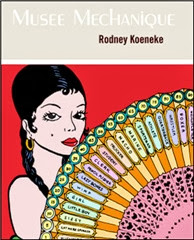
Bengali superstar
Uttam Kumar was known to his fans as Mahanayak—Great Hero—and
Satyajit Ray’s 1966 primer on the psychology of stardom was written so closely to the details of Kumar’s career that it’s hard not to read the film as his autobiography. In the process of dissecting Kumar’s celebrity, Ray takes gentle swipes at both popular Indian cinema and the censorious, would-be cosmopolitan business class that’s quick to condemn it, believing “nothing good” comes out of India. The upshot is an intriguing catch-all of Ray’s reflections on the relationship between art and society held together mostly by the strength of Kumar’s magnetic performance.
The film’s central conceit is Kumar’s trip by train from Kolkata to Delhi to receive an award. His latest film is shaping up to be his first flop, and in putting off the decision to accept the honor he misses the chance to fly. The trip requires him to mix with his fellow Bengalis—a successful businessman traveling with his sick daughter; an ambitious ad exec and his pretty young wife, with her own dreams of starring in films; an ambiguous guru of the World Wide Will Workers (WWWW) organization; and a bespectacled young journalist (
Sharmila Tagore) traveling to Delhi to peddle copies of her highbrow women’s literary quarterly.
The train trip becomes a deft enough metaphor for Kumar’s journey into his past on the brink of his first failure, but it also acts as an interesting structural constraint that must have inspired
Wes Anderson’s The Darjeeling Limited. Unable to sleep, worried about his waning market appeal, and troubled by an affair with a married actress that’s just hit the papers, Kumar strikes up a relationship with Tagore, who becomes his confessor and conscience during the course of an impromptu interview for her magazine. Tagore's indifference to his celebrity reminds Kumar of the artistic ideals he abandoned when he left theater for film, and as he opens up to her he begins to realize how shallow his subsequent life has been. Left-wing politics, his early drive to inject new realism into Indian film, and the chance to help old friends and colleagues have given way to boozy nights and casting-couch affairs fueled by an obsessive concern for his popularity with his “market.”
Ray’s script probes the split between popular cinema and “real” art, but his own efforts at psychological realism tend to flounder. Kumar’s dilemma is clear in the first fifteen minutes and never really deepens beyond cliché. That leaves the rest of the film without much to do but moodily elaborate his crisis: there’s a drunken stagger through the train played beautifully by Kumar, and a couple of Freudian dream sequences that tip a hand, but don’t really hold a candle to
Raj Kapoor’s famous dream scene in
Awaara. The film is also hampered by its claustrophobic “film about a film” structure, where a celebrity playing a celebrity comments on movies while inside a movie (though this also creates some of the film's finest moments: in one of
Nayak's most powerful scenes, Kumar tutors Tagore on how to act normal as a crush of fans presses against the train window during a stop, sandwiching the couple between the mute crowd on one side of the glass and the unseen theater audience, us, on the other.)
But I think a larger problem in
Nayak is Ray’s equation of “real” art with naturalism, and naturalism with psychological ‘inwardness.’ Where the Bollywood movies assign stock roles to their characters to get on with the business of zipping them horizontally through plot,
Nayak slows down the rate of incident for the sake of the vertical, taking us down through the layers of Kumar’s subconscious to his hidden core (his love/hate relationship with Tagore, scribbling down his memories and dreams for her interview, resembles nothing so much as analysis.) Ironically, despite Kumar’s subtle performance, what we find once we’re down there is a tried-and-true Bollywood stereotype: the troubled, sensitive hero who drinks to escape a cruel world. Just like you end up sort of rooting for Kumar, despite his shortcomings, by the end of the movie I was cheering for Bollywood, with all its superficial movement, over
Parallel Cinema’s naturalistic pretensions. It's a fun trip, but I was glad to step off the train.
Uttam Kumar died on set of a massive heart attack in 1980, at 54.










